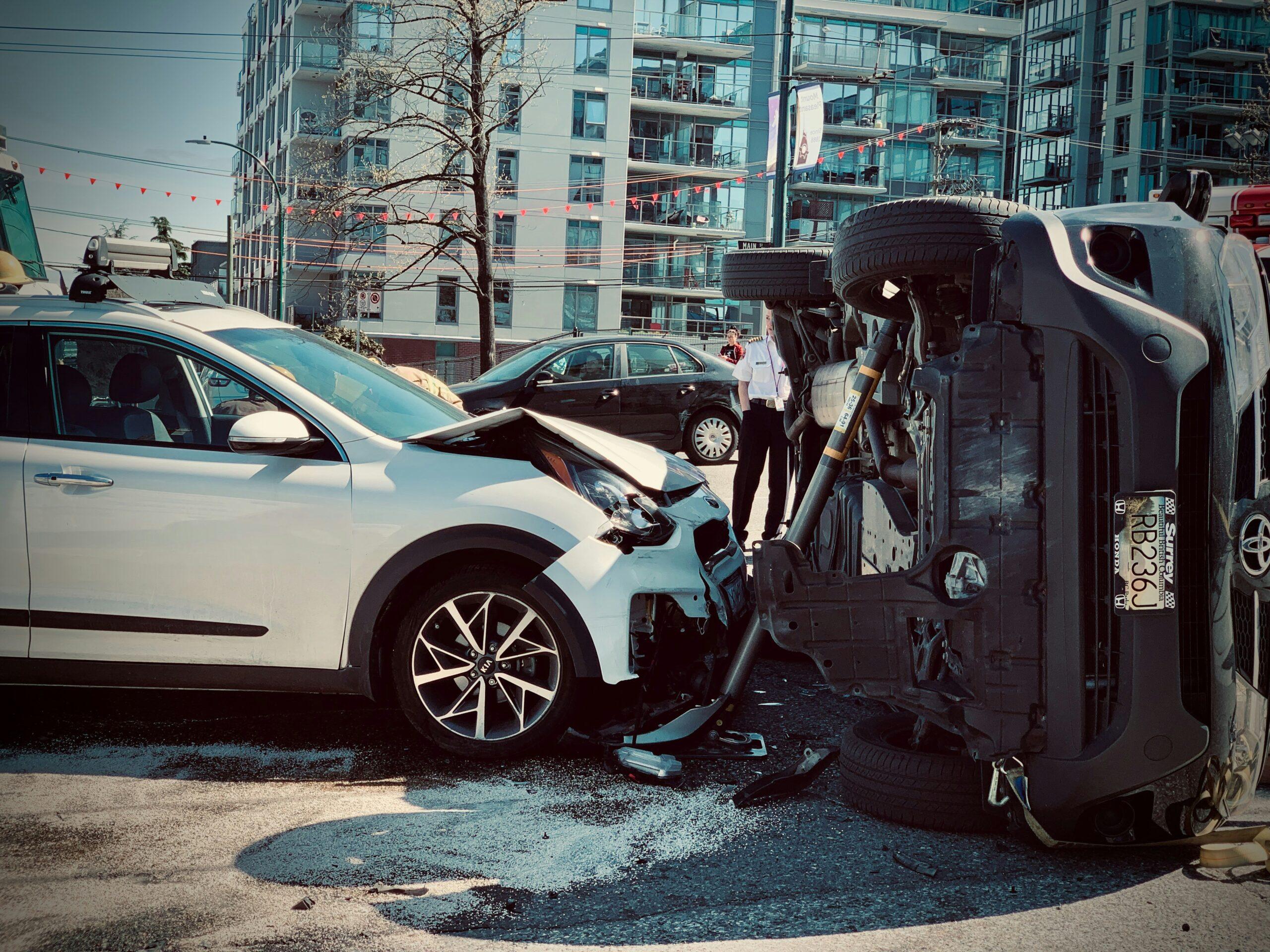Table of Contents

 Trusted Content
Trusted Content
Understanding what qualifies as a serious injury after a car crash matters because it can directly affect your ability to seek compensation and the types of damages available to you. Georgia law draws clear lines between minor injuries and serious ones, and these distinctions shape how insurance companies respond to your claim. Unfortunately, insurance adjusters know these classifications well enough to use them to limit their payouts.
Meanwhile, you’re left wondering if your herniated disc, broken bone, or traumatic brain injury meets the threshold for serious injury and what that means for your financial recovery.
How the State of Georgia Defines Serious Injury
Georgia law defines serious injury as harm that creates a substantial risk of death, causes serious disfigurement, or results in the loss or impairment of a body part or organ. This definition appears throughout Georgia’s civil and criminal statutes, setting the standard for when injuries move beyond minor harm into legally significant territory.
The statute of limitations on Georgia car accidents usually gives you two years from the date of your injury to file a personal injury lawsuit, but understanding whether your injury qualifies as serious affects how you approach that timeline. Insurance companies often try to minimize injuries early in the claims process, hoping you’ll accept a quick settlement before the full extent of your harm becomes clear.
Serious injuries typically require extensive medical treatment, keep you out of work for extended periods, and fundamentally change your daily life. The car accident lawyers at The Dixon Firm have seen countless cases where injuries initially dismissed as minor evolved into permanent disabilities requiring ongoing care. Courts look at both the immediate impacts and long-term consequences when determining if an injury meets the serious injury threshold.
Types of Injuries that Qualify as Serious
Certain injuries almost always meet the legal definition of serious injury due to their nature and typical outcomes. Traumatic brain injuries are the most serious; even mild concussions can cause lasting cognitive problems, personality changes, and chronic headaches that persist for years. Moderate to severe TBIs often result in permanent disability, affecting memory, reasoning, and emotional regulation.
Spinal cord injuries represent another category of serious injury. These injuries frequently cause partial or complete paralysis, requiring lifelong medical care, adaptive equipment, and home modifications. According to the Mayo Clinic, spinal cord injuries can affect every aspect of a person’s life, from mobility to bladder control to respiratory function.
Severe fractures, particularly those requiring surgery, hardware implantation, or resulting in permanent deformity, also qualify as serious injuries. Complex fractures of the pelvis, femur, or skull involve significant recovery periods and often leave victims with permanent limitations. Burns covering substantial portions of the body or reaching third-degree severity create both disfigurement and functional impairments.
Internal organ damage from blunt force trauma, amputations, severe lacerations requiring extensive reconstructive surgery, and injuries causing permanent vision or hearing loss all fall within the serious injury category. These injuries often require substantial medical intervention, create lasting impairment, and fundamentally alter the victim’s quality of life.
How Serious Injuries Differ from Minor Injuries
The distinction between serious and minor injuries goes beyond severity alone; it encompasses treatment duration, recovery prospects, and long-term impact. Minor injuries typically heal completely within weeks or months with basic medical care. A whiplash strain, for example, may cause significant discomfort at first, but it can resolve with physical therapy and pain management.
Serious injuries, by contrast, involve incomplete recovery or permanent changes. You might regain function through extensive rehabilitation, but you won’t return to your pre-accident baseline. A herniated disc requiring surgery exemplifies this difference – even successful surgery can leave residual pain and mobility limitations that persist indefinitely.
Proving an Injury’s Severity
Medical documentation can help you establish the distinction between minor and major injuries. You can typically prove minor injuries with brief medical records showing straightforward treatment and subsequent improvement.
Serious injuries, on the other hand, may require extensive documentation spanning multiple specialists, diagnostic imaging, surgical reports, and long-term treatment plans. The Cleveland Clinic notes that serious injuries often require coordinated care teams, rather than single-provider treatment.
The financial impact of a serious auto injury differs dramatically as well. Minor injuries might generate several thousand dollars in medical bills, whereas serious injuries routinely exceed hundreds of thousands of dollars to pay for initial treatment, ongoing care, adaptive equipment, home modifications, and lost earning capacity. Insurance companies understand these distinctions and adjust their settlement strategies accordingly, which is why having an experienced personal injury lawyer matters when dealing with a serious injury claim.
Following Your Treatment Plan Is Essential to Your Case
Proving a serious injury requires comprehensive medical documentation to establish both the severity of your harm and its lasting impact. The process starts in the emergency room or doctor’s office immediately after a bad car accident. Initial diagnostic tests, like CT scans, MRIs, and X-rays, can provide objective evidence of structural damage that insurance companies cannot easily dispute.
Follow-up care documentation builds your case by showing the injury’s progression and treatment complexity. Surgical reports, hospitalization records, and specialist consultations show that your injury required significant medical intervention. Physical therapy notes, pain management records, and ongoing treatment plans prove that your recovery will extend beyond a few weeks or months.
Medical opinions from treating physicians can carry substantial weight in serious injury cases. Written statements explaining your prognosis, permanent impairments, and future medical needs create a roadmap for calculating damages. These notes should specifically address your functional limitations, such as specific activities you can no longer perform or can only perform with difficulty.
Diagnostic test results can also provide a strong counter to the insurance company’s arguments. Nerve conduction studies showing measurable nerve damage, bone scans revealing incomplete healing, and neuropsychological testing documenting cognitive impairment can all supply the concrete evidence you need to support your serious injury claim. Our skilled team at The Dixon Firm works with clients to obtain documentation from medical providers to support your claims.
You Can Request Higher Damages for a Serious Injury by a Motor Vehicle in Georgia
Serious injuries open the door to substantially higher compensation than minor injuries because they generate larger economic losses and more significant non-economic harm. Medical bills for serious injuries often reach six or seven figures when you account for treatment, rehabilitation, ongoing care, and future needs. Lost wages can stretch beyond a few missed weeks of work to include years of reduced earning capacity or the complete inability to work.
Non-economic damages increase dramatically with serious injuries. Pain and suffering compensation reflects the intensity and duration of your physical discomfort. A broken bone that heals in six weeks, for instance, causes less pain and suffering than a traumatic brain injury that causes daily headaches for years.
Modified Comparative Negligence
Georgia’s modified comparative negligence rule applies to severe injuries as well as minor ones, so if you are partially responsible for the accident, then your compensation can decrease proportionally. However, serious injuries often generate payouts high enough that even a reduced settlement is still considered significant compensation. An Atlanta car accident lawyer can help establish the other driver’s fault and minimize the attribution of blame on you.
Insurance companies approach serious injury claims differently from minor ones. They know these cases can result in substantial jury verdicts if they go to trial, which sometimes makes them more willing to negotiate a reasonable settlement. However, they also invest more resources in fighting serious injury claims, hiring medical experts to dispute your injuries and investigators to challenge your account of the accident, which is why you must have a strong legal advocate by your side.

What to Do When the Insurance Company Disputes Injury Severity
Insurance adjusters routinely challenge serious injury claims by arguing that injuries aren’t as severe as claimed or weren’t caused by the accident. They scrutinize medical records, looking for pre-existing conditions they can blame for your current symptoms. A prior back injury from years ago, for example, becomes their explanation for your herniated disc, even when your accident clearly aggravated or worsened the condition.
Surveillance is another common tactic insurance companies use, which involves hiring investigators to record you performing daily activities, hoping to catch footage that contradicts your claims. They might film you carrying groceries and argue this proves you’re not seriously injured, ignoring that you spent the next two days in bed because that one activity exhausted you and triggered a flare-up.
Independent medical examinations give insurance companies ammunition to dispute your injuries. They send you to the doctors they themselves hire, knowing these doctors tend to minimize injuries and will find ways to argue that you’ve reached maximum medical improvement sooner than your treating doctors would say you did. These examinations tend to consist of a brief review that lacks the thoroughness of a proper physical.
Gaps in medical treatment give insurance companies another argument. If you missed physical therapy appointments or delayed seeing specialists, they’ll claim your injuries weren’t serious enough to require consistent care. Financial barriers, transportation challenges, or simply feeling overwhelmed after a traumatic accident might explain treatment gaps, but insurance companies exploit them nonetheless. Documentation explaining any gaps in treatment helps counter these arguments.
Take Action After a Serious Accident Injury with The Dixon Firm
Hiring an attorney to handle communications with the insurance company after you suffer a severe injury protects you from making statements that could damage your claim. The motor vehicle accident lawyers at The Dixon Firm serve clients throughout Georgia who’ve suffered serious injuries in accidents, fighting to secure the compensation they need for recovery.
Contact us today to schedule your free consultation.








